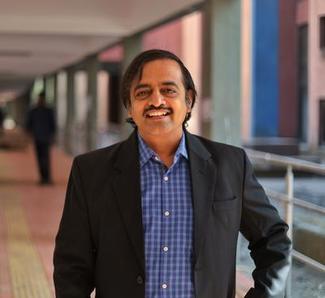Ravindra D Gudi
Core Faculty
Professor

Computer-aided Design Centre (CAD)
Core Faculty
Professor
Distinguished Instrumental Professional Award (Intl. Society of Automation – 2015)
Chair IFAC Technical Committee 8.4 (July 2014 – 2017)
Associate Editor IFAC Journal of Process Control (since January 2010)
Herdillia Award for Excellence in Basic Research in Chemical Engineering (2009)
Manudhane Applied Research Award Department of Chemical Engg IIT Bombay. (2006).
Visiting Professor Department of Chemical and Biological Engineering University of Wisconsin-Madison USA (2003-2004) Washingon University at St. Louis USA (Summer 2015)
Lovraj Kumar Memorial Award for promotion of Industry Academia Interaction (July 1998- January 1999).
Canadian Commonwealth Fellowship by the Government of Canada (1991-1995).
Large scale optimization problems, resulting from analysis of enterprise wide optimization & control objectives, are usually daunted by complexity related to size. Model based and goal based decomposition and co-ordination methods help to simplify the complexity by decomposing the larger, central problem into smaller sub-problems that have a greater possibility of being solved to local optimality. A co-ordination/ co-operation between these sub-systems then helps towards recovering the global optimality of the overall system. Such approaches also offer merits towards permitting additional degrees of freedom for solving the local optimization problems. Work in my research group has focused on analyzing approaches to reduce complexity in optimization problems posed in the areas of scheduling and decision support as well as large scale enterprise wide optimization (such as oil & gas production).
The main tenet of good manufacturing practice (GMP) requires that robust process designs are complemented by continuous improvement based manufacturing strategies. In a typical product development and manufacturing lifecycle beginning from bench scale to full scale, a lot of useful data is generated and archived. The wealth of information present in this data could be exploited towards generating an improved understanding of the cause-effect relationships. This improved understanding could be translated in terms of developing more accurate models that would help in generating realistic and optimal operating policies. Work in my research group has focused on exploiting advances in learning theory to develop improved dynamic models and hence better operating strategies/ recipes for batch and continuous process manufacturing.
Feedstock for renewable fuels is usually sourced from a diversity of sources, that results in significant variation in its quality. The scalability of these renewable energy generation technologies is therefore reliant on a tight integration of energy generation with feedstock diversity. Aspects related to selectivity and severity of feedstock assimilation and the overall dynamics of the conversion process impacts the overall response times of the energy generation unit to varying/ fluctuating demand patterns. Research work in my group is currently focused on analyzing these integration issues both in the context of energy generation as well as waste valorization.